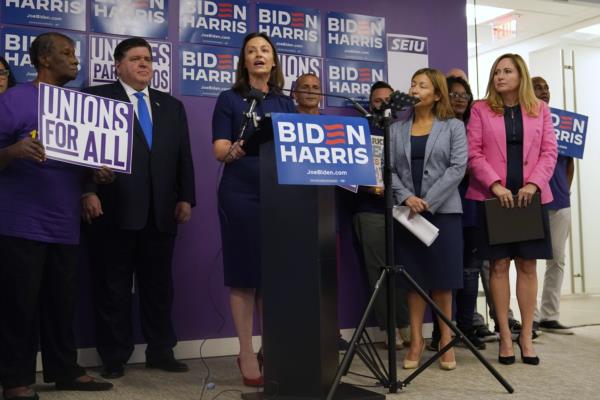
Senate Democrats have raised concerns over the ongoing conflict between Israel and the terrorist organization Hamas in Gaza. President Biden is facing the challenge of balancing support for the U.S. ally, Israel, while also addressing the grievances of progressives, Arab, and Muslim voters who have expressed discontent during the conflict.
Some Democratic senators, such as Sen. John Fetterman from Pennsylvania, have voiced opposition to a cease-fire, emphasizing the need to allow Israel to address the threat posed by Hamas. However, other senators, like Sen. Chris Murphy from Connecticut, have highlighted the significant civilian casualties in Gaza and commended Biden for increasing pressure on Israel to improve humanitarian aid deliveries.
Biden's endorsement of a cease-fire follows pro-Palestinian protests at his campaign events and reports of frustration over Israel's actions, including the killing of aid workers in Gaza. The U.S. recently allowed a United Nations Security Council resolution calling for a cease-fire to pass, a move criticized by Israeli Prime Minister Benjamin Netanyahu.
Vice President Kamala Harris met with families of American hostages held in Gaza to discuss efforts to secure their release and achieve an immediate cease-fire. The Biden administration's handling of the conflict has faced criticism from Senate Republicans, who accuse the president of abandoning Israel and making decisions based on political considerations.
While some Democratic senators have refrained from directly criticizing Biden's approach, others have blamed the Netanyahu government for exacerbating the humanitarian crisis in Gaza. The complex dynamics of the conflict have posed challenges for Biden in navigating support for Israel while addressing concerns for Palestinian civilians.
As the conflict continues, Biden's stance on the Israel-Hamas war has become a contentious issue, with implications for his re-election campaign and relations with Muslim communities. The president's efforts to strike a delicate balance between supporting Israel and addressing humanitarian concerns in Gaza have sparked debate and scrutiny from both sides of the political spectrum.







